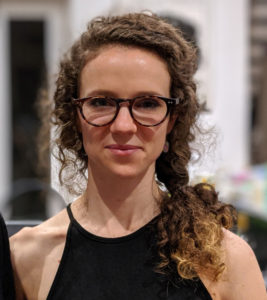How did you get started in bridge? At what age? Who from?
My dad taught me how to play bridge when I was 14 — that was 16 years ago! We still try to play together whenever I go back home.
What do you do professionally?
Currently, I’m in the third and final year of a PhD in pure mathematics.
Who is your partner and for how long? Longest partnership?
My partner is Ella Jacob, and we’ve been playing together for only a couple of months! My longest partnership would have to be with Lauren Travis – we played when we were both still in the youth, and we played: World Youth Team Championships 2012, World Youth Open Bridge Championships 2013, APBF Youth 2013, and World Youth Team Championships (Girls) 2014.
If you had a choice who would you like to play with? Australia and Internationally- living or dead?
Definitely Justin Lall. Apart from the fact that he was obviously a bridge superstar, he was actually just a fantastic person too.
In your playing career, what is the bridge success that has the most meaning for you?
Winning two silver medals at the World Youth Open Bridge Championships 2013 in USA, followed by a gold medal at the APBF Youth 2013 in China. Our team were all really close friends, and it was fantastic to have such a successful month with a group of people who really deserved it.
And your worst moment in bridge?
A number of years ago, I went through a period of missing out on qualifying (for teams, or playoffs) by very small margins. In 2016 my SWPT team of myself-Lauren Travis, James Coutts-Sam Coutts missed on the NOT playoffs at the Summer Festival of Bridge in Canberra by 0.31 VPs. In 2016, our NZ Mixed team of myself-James Coutts, Ella Jacob-Nick Jacob, and Andi Boughey-Tom Jacob missed out on the playoffs of the 2016 World Bridge Games by 0.01 VPs. These were just two notable memories in a sea of disappointments. Around that time I also missed out on qualifying for the Australian Youth Team a number of times. Come the end of 2016, I was ready to quit.
What do you do you do between sessions to put you in the best frame of mind for the following session?
Honestly, not think about bridge at all. I find a need a break to put myself in the best state to play. I like to relax by listening to music, going for a walk, or just sitting down for lunch by myself (where there aren’t any bridge players talking about bridge!).
Do you have a favourite and least favourite convention?
I don’t think I do – I used to have a lot of likes and dislikes when it comes to system, but these days I’m just happy to play whatever my partner likes.
Would you prefer to have more system or less?
Definitely less. I feel like I’m still at the stage where I should focus on improving the basics (like card play, defense, etc.), but particularly improving sound bidding judgement. This is an extremely valuable skill and I don’t think you can learn this while using complicated system as a crutch.
What do you do to improve your game?
Bridge hasn’t been a big priority in my life in the last few years, so honestly, not very much. But if I was to focus on bridge as a hobby, here’s what I would do.
Outside of tournaments
- Practice! Bidding, card play, defense, everything. Practice by playing on bbo regularly, playing all the major tournaments, and reading books. Practice practice practice.
- Debrief: I think improving hinges tremendously on reviewing past performance. So, I would review all hands I played by myself, or with my partner or mentor.
- Get a mentor: For me it’s much easier to improve when I have someone to talk things through and get help from.
At tournaments
- Meditate: Every day, for at least 10 minutes. For me focus is a big issue, and meditating really helps me practice my ability to focus.
- Keep a good schedule: Go to bed early (e.g. 10-11pm), get up at least a few hours before the start of bridge that day, and ideally, do some exercise before playing (e.g. run, yoga, fitness workout).
- Don’t talk about bridge outside of matches unless it’s important for system or partnership harmony.
- Be healthy: exercise, keep drinking to an absolute minimum, and eat well.
![]()

